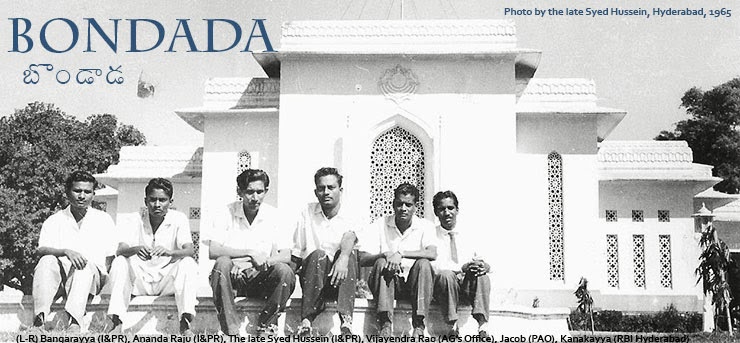This engrossing study identifies secrecy as a ‘very British disease’, exploring how, as the empire came to an end, government officials burned the records of imperial rule
British
colonial secretary Iain Macleod (centre left, holding hat) attends a reception
in Rurungu, Kenya, in 1959. Photograph: Central Press/Getty Images
Thursday
6 October 2016 15.00 BST Last modified on Saturday 8 October 2016 00.05 BST
Britain’s retreat from empire is remembered in a popular iconography that contains only a little violence. Gandhi goes on hunger strikes and performs acts of passive resistance; the Suez debacle calls time on our pretensions as a world power; Macmillan heralds the wind of change in Africa. All is done and dusted in the space of 15 years. For a postwar generation like mine, too young for national service and a troopship to the colonies, most of it happened inside the local Regal or Odeon. Movietone footage would show Princess X or Prince Y standing on a podium to witness a ceremony of national independence, smiling at the native dancers as fireworks explode overhead. This book supplies a more troubling image: as the sun sets on the greatest empire the world has ever seen, long columns of smoke fill the tropical skies. In a thousand bonfires, Britain is burning the historical evidence.
At first,
the process was rather carefree. When Britain quit India in 1947,
a colonial official noted that “the press greatly enjoyed themselves with
the pall of smoke which hung over Delhi with the mass destruction of
documents”. By the time of Malayan independence in 1957, the authorities were
learning discretion. British soldiers drove cratefuls of papers in a civilian
truck from the colony’s capital, Kuala Lumpur, to what an administrator
referred to as “the Navy’s splendid incinerator” in Singapore. This 220‑mile
journey to a secret burning exemplified the “considerable pains” taken by the
colony “to avoid exacerbating relationships between the British government and
those Malayans who might not have been so understanding”. Four years later, in
1961, the colonial secretary Iain Macleod laid down some groundrules for British
territories preparing for independence. No documents should be handed over to
the successor regime that might embarrass Her Majesty’s Government or its
police, military and public servants; or that might compromise its sources of
intelligence or be used “unethically” by the country’s new government.
Bonfires
alone were too blunt a method of concealment. A newly liberated country might
wonder why it inherited so few archives, while Britain might need to retain,
for sentimental or other reasons, documents that in the wrong hands could
damage its interests. The Colonial Office devised a system known as
“Operation Legacy” that worked on the principle of parallel registries.
Reliable civil servants, which in the government’s eyes meant only those who were
“British subjects of European descent”, were given charge of identifying and
collecting all “sensitive” documents and passing them up the bureaucratic
chain. This meant that when the moment of independence came, if not before,
they could either be destroyed on site or removed (“migrated” became the
official term) to the UK. As to the so-called “Legacy” files that the colony’s
new government would inherit, it was important that they gave an impression of
completeness, either by creating false documents to replace those that had been
weeded out or by making sure there was no reference to them in the files
that remained.
This
purging of the record happened across the world, in British Guiana, Aden, Malta, North Borneo,
Belize, the West Indies, Kenya, Uganda – wherever Britain ruled. In the words
of Ian Cobain, it was a subversion of the Public Record Acts on an industrial
scale, involving hundreds if not thousands of colonial officials, as well as
MI5 and Special Branch officers and men and women from army, navy and air
force. All of them, whether they knew it or not, were breaking a legal
obligation to preserve important official papers for the historical record, in
the expectation that most would eventually be declassified. The British
government took extraordinary measures to make sure that the fate of these
papers remained a secret, whether they had been “migrated” to the UK or
destroyed abroad.
According
to official instruction, the waste left by bonfires “should be reduced to
ash and the ashes broken up”. If burning was thought to be too difficult or
unsuitable, then the sea offered an alternative. Officials in Kenya were told
that documents could be “packed in weighted crates and dumped in very deep and
current-free waters at maximum practicable distance from the coast”.
Governor
general Lord Mountbatten salutes India’s National flag alongside his wife,
Edwina, and prime minister Jawaharlal Nehru during India’s first Independence Day
celebrations in New Delhi, 1947. Photograph: AP
Most of
the files that survived – the concealed “migrated archive” – found
their way to Hanslope Park, a country estate just off the M1 near Milton
Keynes, where the Foreign Office maintained an enormous cache of documents
under the title “Special Collections”. By Cobain’s reckoning, 15 miles of
floor-to-ceiling shelving was packed with files that dated from the 17th
century to the cold war and the Troubles in Northern Ireland –
files so numerous that their catalogue entries measured the metres of shelf
space they occupied. Officially, none of these documents existed.
Some
discreet research by the Foreign Office in 1979 showed that only two (Kenya
and Malta) of 37 former colonies were aware that their annals had been secreted
in Britain or destroyed. The truth, so far as we now know it, emerged only
because personal injury lawyers and the American historian Caroline Elkins
pursued the evidence of a far crueller British response to Kenya’s Mau Mau
insurgency than the available public records suggested. In 2011, the FO finally
conceded that it had somehow “overlooked” its secret documentary hoard at
Hanslope Park, where the Kenyan files alone took up 60 metres of shelving. Two
years later more than 5,000 Kenyan claimants received £19.9m
in compensation and expressions of regret from the then foreign secretary William Hague. “We believe there should be a
debate about the past,” said an FO official. “It is an enduring feature of our
democracy that we are willing to learn from our history.” But that particular
lesson had never been intended.
Why were
British governments so determined to obscure and bowdlerise their country’s
colonial record? Some reasons are understandable: to spare individuals from
embarrassment or prosecution; to help secure the loyalty of successor regimes
during the commercial, military and political competition of the cold war. But
Cobain goes further: Operation Legacy was intended to ensure that “the British
way of doing things” would be remembered with “fondness and respect” – that the
conduct of its imperial retreat would be seen as exemplary. To go to such lengths
of deception for something as intangible and imponderable as a place in
history’s good books may seem unlikely, but it was surely for these reasons,
rather than any security concern, that, for example, British officialdom asked
its servants to destroy or return to Britain any papers that “might be
interpreted as showing religious intolerance on the part of HMG” as well as
“all papers which might be interpreted as showing racial discrimination against
Africans (or Negros [sic] in the USA)”.
There is
something else. We like secrets. Cobain recounts the history of British
state secrecy from 1250, when the members of England’s Privy Council first
swore to keep their proceedings private. The oath has remained unchanged for
the nearly 800 years since, while secrecy as a habit has grown via legislation
(particularly the Official Secrets Act of 1911)
and the confidentiality clauses contained in the humblest contract
of employment. Cobain refers to it as “a very British disease”, and
while he makes no comparison with other modern democracies – it would have been
helpful to know, for example, how seriously the French state takes the duty of
transparency – his conclusion that government secrecy in Britain is not “just
an occasional necessity but the fiercely protected norm” is hard to refute.
In the
1950s, the distinguished American sociologist Edward Shils decided that the
explanation lay with a ruling class that was “unequalled in secretiveness
and taciturnity”, whose members were so close and comfortable with one another
that they had little fear of hidden secrets. Cobain largely supports this view.
Class deference combined with a relatively benign and trusting view of the
state’s behaviour may explain “why the peculiarly uncommunicative nature of the
British state does not provoke greater resentment and unease among the British
public and media”.
Edward Snowden is a case in point. When his
disclosures about the UK and US governments’ practice of mass electronic
surveillance were published (first in the Guardian) in 2013, the reaction in
Britain was mild compared with the outrage expressed in many other countries.
Inter-newspaper jealousies, the conservatism of the BBC,
the rightwing nature of the British press: all these may have played a part in
muting our concern. But it may also be that as a society we continue to believe
in secrets and the people who make and guard them, despite everything Cobain
reveals in this engrossing book.
Source: theguardian



